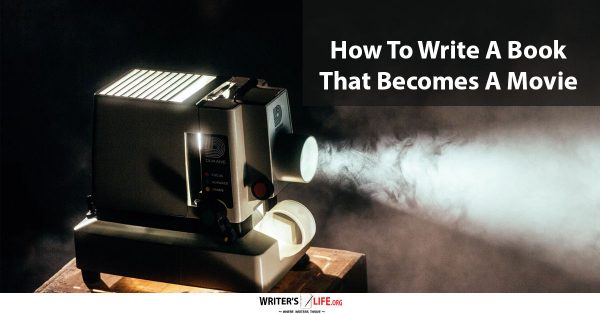- How To Tackle Jealousy In Creative Writing
- Common Submission Mistakes
- How To Stop Your Blog Becoming Boring
- The One Thing Every Successful Writer Has In Common
- How To Make Yourself Aware Of Publishing Scams
- Why Almost ALL Writers Make These Grammar Mistakes At Some Point
- 5 Tips For Authors On How To Deal With Rejection
- Top Mistakes to Avoid When Writing a Novel
- How to Avoid Common New Writer Mistakes
- 10 Mistakes New Fiction Writers Make
How To Write A Book That Becomes A Movie

Dreaming of becoming a published author is one thing, but what about seeing your novel turned into a script and acted out on the big screen?
While it might be a pipedream, there is no reason why authors shouldn't think big, and in fact, there are some places out there calling for novelists to send them their books directly to see if they'd make good screenplays, so it might not be as big of a long shot as you would think.
However, not all books make great movies, and there are certain elements that your story should contain if you want to stand a chance of this happening.
So what does it take to write a book that becomes a movie? Let's take a look.
A fast-paced plot and a proper narrative arc
Your plot needs to be the driving force of your novel, it should be full of energy, of action and that the various events that occur throughout are well thought out, and correctly linked together. Your narrative arc is also essential - your story should have a clear beginning, middle, and end, and the action should rise and intensify in an arc until the denouement and final conclusion.
Compelling characters and snappy dialogue
Your characters must be true to life, but also larger than life. They need to be exciting, relatable, full of tangible emotion, and ones that ignite a connection in the reader. We must genuinely care about them; we must love them or love to hate them, they must be three-dimensional, and remarkable even if what is to be remarked upon is their blandness, ugliness or despicableness (if that is the author's intention of course)!
A setting that is imaginative, and drives and emotional response
Being able to convey a visceral setting, rooting your story in a particular place at a specific time is also essential. Your setting is not just the background; it plays a massive role in the book and should be treated as such. The environment should correlate with the mood and atmosphere and be tied to the heart of the story.
The old favorite - show, don't tell
A book that translates well into a movie is one that gives readers room to interpret, to deduce meaning from your carefully chosen words, without explaining to them rigidly and extensively how they should be reacting, thinking or feeling at every moment. Don't spoon-feed your reader's information, use witty narrative, delightfully descriptive details and arresting imagery to gently direct them and make them notice what you want them to see and feel how you want them to feel without explicitly telling them so.
Remember, it is essential to be true to yourself and the story that you want to tell. Attempting to write a book purely so it may be turned into a movie will probably mean that you'll end up with a lousy book that no one is interested in reading anyway. If your dream is to see your story played out on the big screen, keep the above tips in mind when writing your novel to stand the very best chance of success.

Bethany Cadman - bethanycadman.co.uk





























